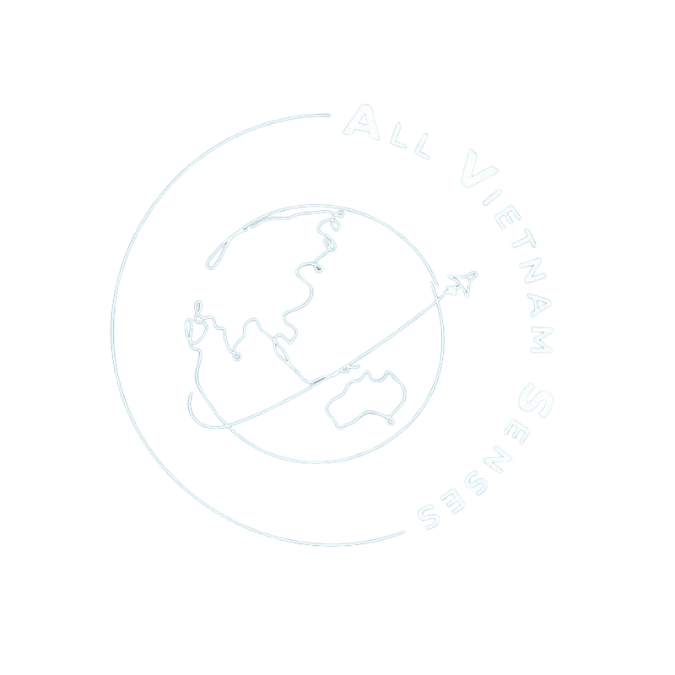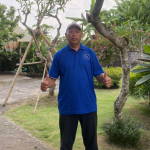Essential Vietnam Travel FAQ
General

- What is the Vietnam time zone?
- Q. Vietnam is 7 hours ahead of London (UK), 12 hours ahead of New York (US), and 3 hours behind Sydney (Australia).
- Can I get by only speaking English?
- Q. Yes, you can. In touristy areas and major cities, many locals speak enough English to help you get by. However, in remote regions, English speakers are less common. A local phrasebook with basic phrases like “How much is that?”, “Hello”, “Goodbye”, and “Thank you” can be handy and enhance your travel experience.
- Does Vietnam have reliable internet service?
- Q. Yes, internet access is widely available, especially in towns and cities. Most guest houses and hotels offer internet access, though some may charge a fee. Internet cafes are plentiful and affordable, with the fastest connections found in Hanoi and Ho Chi Minh City.
- Will my mobile phone work in Vietnam?
- Q. Absolutely. You can easily buy a prepaid SIM card for less than $1 at numerous mobile stores. While you can use roaming services, it is costly. Using Wi-Fi in cafes, restaurants, and hotels in big cities can save you money.
- Should I organize travel insurance?
- Q. Yes, travel insurance is recommended. It can cover medical emergencies, evacuation costs, trip interruption, and unexpected cancellations.
Culture

Will I experience major culture shock?
- Q. Vietnam’s culture is unique and fascinating. To avoid misunderstandings, it’s helpful to know a few basics:
- Temples: Dress conservatively and remove your shoes when visiting temples or pagodas. Avoid sitting with your back to a Buddha statue. Always ask for permission before taking photos.
- Dress Code: Respect local dress codes by wearing tops that cover your shoulders and shorts that reach your knees, especially at religious sites. Remove your shoes when entering someone’s home.
- Meet and Greet: Shaking hands is common, but the traditional Vietnamese greeting involves pressing hands together in front of the body and giving a slight bow.
Food

What is the food like in Vietnam?
- A. Vietnamese cuisine is delicious and diverse, influenced by French colonization and local traditions. Common ingredients include rice, noodles, various meats (fish, prawn, chicken, beef, pork), herbs (kefir lime, lemongrass), and vegetables. Dishes often come with dipping sauces like soy sauce and fish sauce. Street food is affordable and offers a great way to sample local dishes like eggnog coffee, pho, banh mi, and bun cha.
Luggage

What type of clothes should I pack?
- Q. Pack light, breathable clothing for the warm weather. Synthetic or light cotton trousers, shorts, and tops are ideal. For religious sites, bring a shawl or scarf to cover your shoulders and head.
- Is there a suggested limit on the amount of luggage?
- Q. While airlines allow more, a 20 kg limit is practical for easier travel and room for souvenirs.
- What is the electrical current in Vietnam?
- Q. Vietnam uses 220V – 240V outlets, common in Europe, Africa, and Asia, including Australia.
Money

What is the preferred currency?
- Q. The Vietnamese Dong (VND) and American Dollar (USD) are both accepted. The Dong is a closed currency and should be exchanged upon arrival. ATMs and local banks are available for currency exchange. USD is handy for visa fees and tipping.
- Are credit cards widely accepted?
- Q. Credit cards (Visa, MasterCard, JCB, American Express) are accepted in major cities at upmarket venues, but often come with a 5% surcharge. Carry cash when traveling outside major cities. Travelers’ cheques are another option for cash conversion.
- Is travel expensive in Vietnam?
- Q. Vietnam is affordable, especially for food and accommodation. A local dish costs $2-$3, while Western food is pricier. Mid-range hotels in Hanoi cost about $12-$15 per night.
- Is tipping expected in Vietnam?
- Q. Tipping is appreciated but not mandatory. Typical tips include:
- $5-$10 per day for guides and drivers
- $5-$10 for spa services
- 10% of the bill in restaurants
- $2 for hotel staff
Passport & Visa

What are the passport requirements?
- Q. Your passport must be valid for at least six months after your arrival in Vietnam.
- Is a visa necessary to travel to Vietnam?
- Q. Yes, most travelers need a visa. Some countries have visa exemptions for short stays (14-30 days). The easiest option is a Visa on Arrival (VOA), which you can apply for online through a local agency. It’s only valid for entry through main international airports. Other options include e-visas and visas from Vietnamese embassies or consulates.
Health
- Is it safe to drink local tap water?
- A. No, stick to bottled water, which is cheap and widely available. Avoid ice unless it’s from high-end establishments.
Safety
- Is it safe to travel in Vietnam?
- Q. Vietnam is generally safe, but be cautious of pickpocketing in tourist areas. Keep valuables secure and use hotel safes. Carry money and important documents in a waist belt or neck pouch.
- Why is it important to avoid drugs?
- A. Drug offenses are severely punished in Vietnam.
- Is driving on Vietnam’s roads safe?
- A. Traffic in major cities is hectic. Be extra careful when crossing streets or driving.
What do I do in the event of an emergency?
- A. Dial 115 for an ambulance, 113 for police, or 116 for general inquiries. Locals can help with translation if needed. Key hospitals include:
- Hanoi: International SOS Vietnam ((84) (4) 3934 0666), Family Medical Practice ((04) 3843 0748)
- Ho Chi Minh City: International SOS Vietnam ((84) (8) 829 8424), FV Hospital ((08) 54 11 33 33)
- How to report a crime?
- Q. Reporting crimes can be challenging. It helps to have a local for translation. Only sign documents after ensuring accurate translation.
Scams
What are the common scams in Vietnam?
- Q. Be aware of:
- Airport Taxi Scams: Drivers might take you to a different hotel claiming yours is closed, to earn commissions.
- Hotel Rate Scams: Double-check your booking confirmation to avoid inflated prices.
- Cyclo or Motorbike Tours: Agree on the price before the ride to avoid unexpected high charges.
Shopping

What is shopping like in Vietnam?
- Q. Vietnam offers a variety of shopping experiences:
- Ho Chi Minh City: Modern shopping centers, boutique shops, and vibrant markets.
- Hanoi: Quality shopping centers, authentic shops, and lively markets offering silk, silver, and handicrafts.
- Hoi An: Known for tailor-made garments, lanterns, and conical hats, offering unique souvenirs and artworks.
Things to do
What are the sightseeing options in Vietnam?
- Q. Vietnam boasts a mix of cultural and natural attractions. Must-sees include:
- Phong Nha National Park: Known for its cave system.
- Cao Bang Mountains and Halong Bay: Famous for limestone towers and emerald waters.
- Major Cities: Explore historical and cultural sites in Ho Chi Minh City, Hanoi, and Hoi An.
Where are the finest beaches?
- Q. Popular beaches include:
- Nha Trang: Famous for offshore islands and diving.
- Con Dao Islands: Quieter with beautiful scenery.
- Other Beaches: Mui Ne, Phu Quoc, Quy Nhon, Danang, and Phan Thiet.
Transportation

What is the best option to arrive in Vietnam?
- Q. The easiest way is by international flight to major airports in Ho Chi Minh City or Hanoi. Trains and buses are also options from neighboring countries like Laos, China, or Cambodia.
How to get around in Vietnam?
- Q. Vietnam has a good transport network. Use domestic flights for long distances, and buses, minibuses, and taxis for local travel. Transportation is affordable.
- What is the traffic like in Vietnam?
- Q. Traffic in Ho Chi Minh City and Hanoi can be chaotic. Riding solo on a motorbike is challenging in these cities but easier in less crowded areas. Be mindful of different road conditions and traffic rules.
Weather
What is the weather in Vietnam?
- Q. Vietnam’s climate varies greatly:
- North: Cold and frosty in winter (November-April), hot in summer (May-October).
- South: Dry season (December-April), wet season (May-November).
- Temperature: Averages 21°C in the north and 27°C in the south, varying with altitude and latitude


